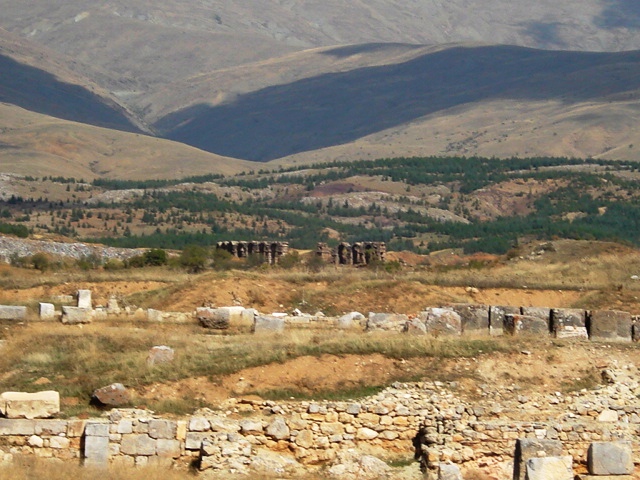What is…
Antioch
This is the name of 2 biblical cities.
-
Antioch on the river Orontes
This ancient Syrian city is located about 16 miles from the Mediterranean Sea, and some 300 miles north of Jerusalem.
It was the metropolis of Syria, and afterwards became the capital of the Roman province in Asia. Of the cities of the Roman empire, it ranked 3rd in importance, after Rome and Alexandria. It was called the “first city of the East.”
It bears the modern name of Antakya (Antakia), Hatay, Turkey. Most of the ancient ruins are still buried, and the modern city itself has been hit by devastating earthquakes. More than 50% of Antakya was destroyed on February 6, 2023. There were devastating quakes in 37 BC, 115 AD and 458 AD, 526 AD (killing 250-thousand), and 1054 (10-thousand died).
This area is known as the “Cradle of Christianity.” In modern times, “Antakya’s Christian community had been shrinking every year in predominantly Muslim Turkey, and the latest disaster has brought it to the brink of extinction.”
Christianity was introduced early into this city (Acts 11:19, 21, 24), and the name “Christian” was first applied here to its professors (Acts 11:26). It is intimately connected with the early history of the gospel (Acts 6:5; 11:19, 27,28,30; 12:25; 15:22-35; Galatians 2:11-12).
It was the great central point from where missionaries to the Gentiles were sent forth.
It was the birthplace of the famous Christian father Chrysostom, who died in 407 AD.
Like Philippi, it was raised to the rank of a Roman colony. Such colonies were ruled by “praetors” (Acts 16:20-21).
Modern Antakya (Antioch), Turkey—satellite view -
Antioch of Pisidia
also known as: Pisidian Antioch
This ancient city was located in Pisidia’s extreme north. Its ruins are near Yalvac, Turkey. Its inhabitants were called Pisidians.
 Ruins of Antioch of PisidiaPhoto by Maderibeyza. CC BY-SA 3.0
Ruins of Antioch of PisidiaPhoto by Maderibeyza. CC BY-SA 3.0This city was visited by Paul and Barnabas on the first missionary journey (Acts 13:14). Here they found a synagogue and many proselytes. They met with great success in preaching the gospel, but the Jews stirred up a violent opposition against them, and they were obliged to leave the place.
On his return, Paul again visited Antioch for the purpose of confirming the disciples (Acts 14:21).
Site of ancient Antioch of Pisidia, now in Turkey near Yalvac—satellite view
More information
- About ancient Syria in the Bible
- What is Pisidia?
- About Turkey in the Bible
- Who is Paul?
- Who is Barnabas?
- What are the cities of the Bible? Names, descriptions, locations and types
- Places of the Bible
Earthquakes in the Bible